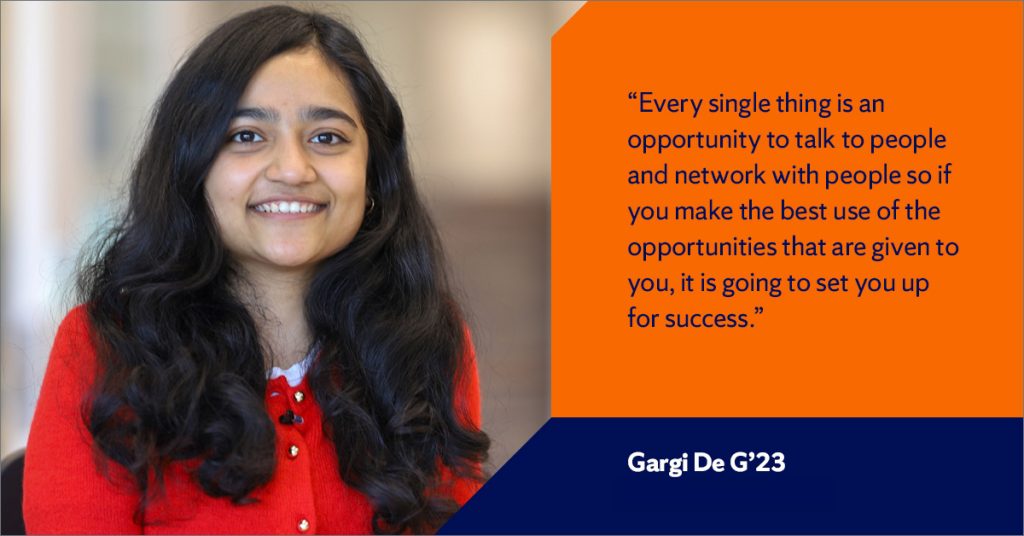
The Department of Electrical Engineering and Computer Science (EECS) in the College of Engineering and Computer Science at Syracuse University offers Ph.D. degrees in Computer and Information Science and Engineering (CISE).
The objective of these programs is to graduate doctoral students who are scholars in their field of research as evidenced by:
- Their ability to do independent research by synthesizing original ideas that are evaluated to be non-trivial contributions by other researchers
- The mastery of their discipline by being able to recall, comprehend, apply, analyze, synthesize, and evaluate ideas with intellectual rigor using the major concepts and results of their discipline.
- Can communicate their ideas effectively as evidenced by their ability to write papers, dissertation, and proposals that are judged to be well written, well presented, and well argued
- Ability to give technical presentations which are judged to be clear, concise, and informative.
The requirements for the Ph.D. programs emphasize mastery of a field of knowledge, familiarity with allied areas, facility in the use of research techniques, responsibility for the advancement of knowledge, and effective communication of ideas. These are tested primarily by comprehensive examinations and the defense of the dissertation rather than by a summation of courses, grades, and credits.
The CISE doctoral program targets those students with research interests in topics generally associated with computer and information science and with software aspects of the computer engineering field.
The basic structure of the requirements for a Ph.D. degree is the same for both degrees. What differentiates the programs are the details, namely:
- The list of topics in which students must demonstrate competencies by completing coursework.
- The topics covered in the written Qualifying Examination Part I.
Open the Summary Chart of the Requirements to view a summary of the requirements for the CISE doctoral programs. Detailed information about these doctoral programs can be viewed by clicking on the icon “Detailed Description.” Furthermore, descriptions of the graduate courses that doctoral students can take (600-level and above) in computer engineering (CSE), computer and information science (CIS), and electrical engineering (ELE) which can be taken by doctoral students can be viewed by clicking the icon “Course Catalog.”
Students with superior qualifications who are interested in advancing their knowledge in Computer and Information Science and Engineering or Electrical and Computer Engineering are invited to apply to one of our Ph.D. programs. These programs combine coursework with research work led by internationally renowned researchers in their areas of expertise. One of the strengths of our doctoral programs lies in the ability of the faculty to participate in many research areas of an interdisciplinary nature. Even though the Department of EECS offers Ph.D. programs in the two areas indicated above, the research interests of many of our faculty connect both of these areas.
Ph.D. applicants are strongly recommended to apply by January 1, so that they can be considered for Fellowship awards. As part of a concerted effort to broaden the diversity of our Ph.D. programs, we no longer require or expect the GRE. Applicants who believe that their application is strengthened by including GRE scores may submit them
View program details in the University Course Catalog
Student Profile—Haowen Fang, Zhengzhou, Henan Province, China
Haowen came to Syracuse University to pursue a master’s degree and find a job in industry. “I never thought of doing a Ph.D. until Professor Qinru Qiu asked me if I were interested in joining her research group,” he recalls. His research is interdisciplinary, in the area of neuromorphic computing, deep learning, and hardware design. He builds neural network models employing a brain-inspired approach to perform cognitive tasks, then implements them on hardware platforms such as FPGA. The results so far have been promising. His models have demonstrated the potential to achieve competitive performance with less energy consumption compared to deep learning techniques.
As a Ph.D., you need to discover something new, find a solution that no one has yet come up with,” says Haowen. “Also, I have a lot of academic and professional opportunities.” In the second year of his program, Haowen has given lectures at conferences, written three papers, participated in workshops and won second place in the International Collegiate Brain-Inspired Computing Competition at Tsinghua University. During the summer, he interns as an R&D Engineer at Synopsys. To keep himself physically and emotionally healthy, Haowen works out in the gym and spends time with his close friends.
